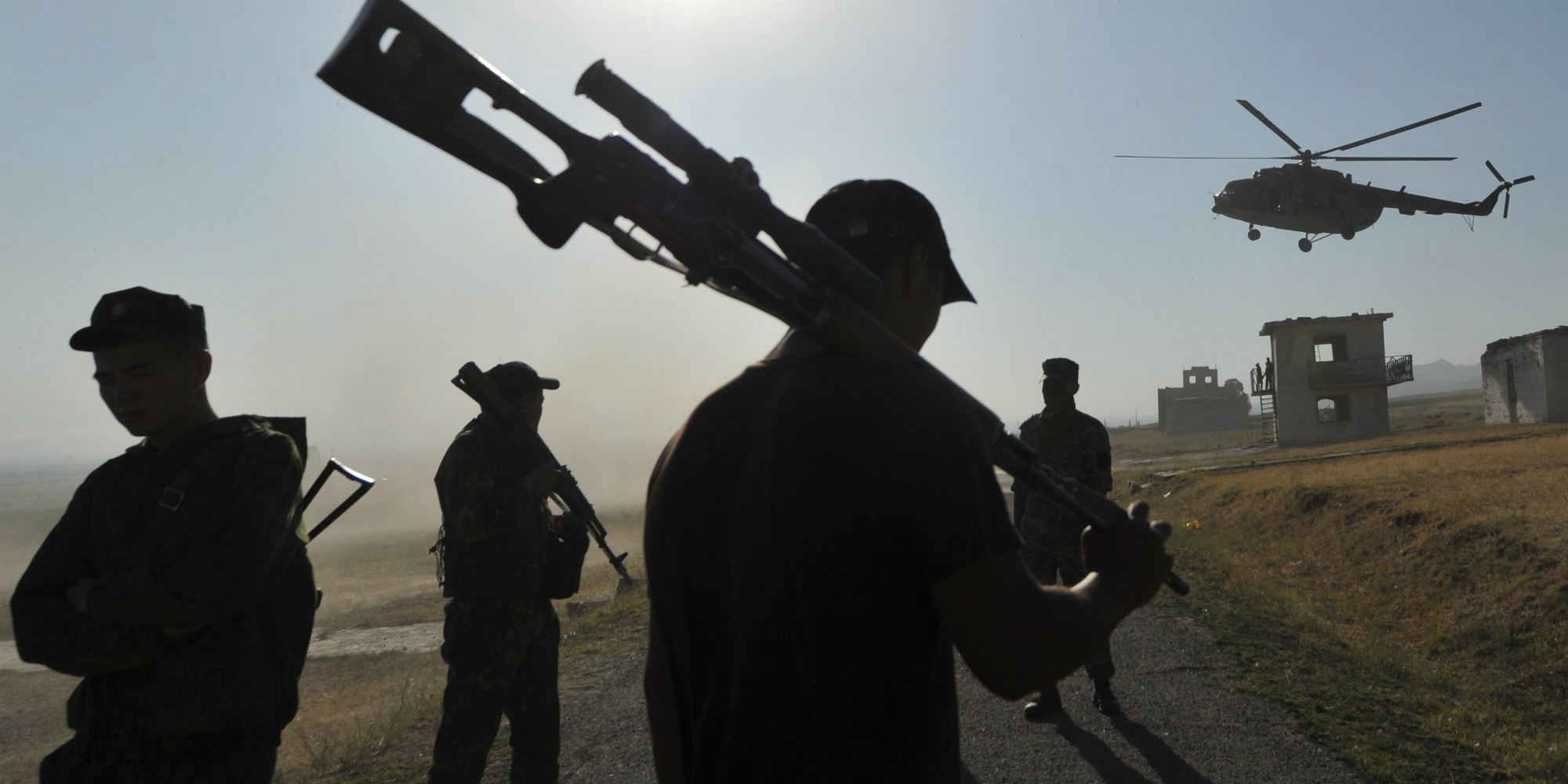The new U.S. president has not commented directly on Central Asia yet, but a January 31 article in Foreign Policy magazine titled “Central Asian Autocrats Welcome the Age of Trump” explored some of the possibilities of the ties between the United States and the five Central Asian nations in the coming months.
According to the article, President Donald Trump’s “America First” foreign policy, which eschews traditional policies like human rights and democracy and emphasizes killing jihadis, has alarmed traditional U.S. allies around the world. But for the regimes of Central Asia, “the former real estate mogul’s brand of international relations is being received with a good bit of optimism.”
Kazakhstan, Kyrgyzstan, Tajikistan, Turkmenistan, and Uzbekistan traditionally linger on the periphery of American foreign policy, and spend more time balancing Russia and China against each other, the article says, noting that the region’s dismal human rights record limits relations with Washington to transactional affairs dealing with issues like energy security and nonproliferation.
“But the Trump administration’s disregard for human rights, obsession with fighting Islamic State terrorists, and calls for better ties with Moscow, including potentially lifting economic sanctions placed on Russia, have Central Asia’s regimes welcoming the Trump era.”
Radio Liberty organized a panel, to talk about what U.S. policy toward Central Asia under new President Donald Trump might look like. Moderating the discussion was RFE/RL Media Relations Manager Muhammad Tahir. Joining him at RFE/RL headquarters in Washington to take part in the discussion was a former U.S. ambassador to Kazakhstan, and currently a senior fellow at the Rand Corporation, William Courtney. Also participating were the author of the above-mentioned article in Foreign Policy magazine, Reid Standish and the US expert in Central Asia Bruce Pannier.
Mr. Standish, in particular, noted there were people in Trump's administration who know something about Central Asia. According to him, Secretary of State Rex Tillerson, earlier he was the CEO of ExxonMobil, obviously from his background as an oilman knows what's happening in the region in terms of energy, and James Mattis, Secretary of Defense, who was the head of CENTCOM, has some pretty acute knowledge of the security situation in the region.
It's clear the Trump administration has "an intense focus on fighting Islamic extremism," Standish explained.
The discussion participants noted that the Central Asian governments have been saying for many years, with some reason, that they are threatened with Islamic extremism. One of the region's southern neighbors is Afghanistan and between 2001 and 2014, all five of the Central Asian countries made some contribution to the U.S.-led campaign in Afghanistan.
The situation in the northern Afghan provinces bordering Central Asia has reportedly been getting progressively worse during the last three years, with fighting moving at times to within easy earshot of people north of the Central Asian border.
But if Trump's tough policy toward Islamic extremism might be a comfort to Central Asian governments, his views on Iran promise to complicate Central Asia's relations with its other southern neighbor.
The lifting of some international sanctions on Iran after Tehran's conclusion of a nuclear deal with major world powers offered the Central Asian states the possibility of a new trade route to the southwest. Heightened tensions between Washington and Tehran would complicate the realization of this opportunity.
Courtney said there were some important aspects of U.S. policy toward Central Asia that were not likely to change under the new administration.
"For the quarter-century since the collapse of the Soviet Union, the West and the United States have strongly supported the sovereignty, independence, and territorial integrity of all of the new republics of the former Soviet Union," Courtney explained.
However, the Trump administration's policies toward Central Asia's leading trade and security partners — Russia and China — are very different and this could prove problematic for Ashgabat, Astana, Bishkek, Dushanbe and Tashkent to navigate through.
Standish did not think any tensions between Washington and Beijing would complicate the foreign policies of Central Asia too much, saying that if it did "that's a sign that relations between Washington and Beijing elsewhere have gotten pretty bad."
One of the big questions is whether the Trump administration would be willing to focus on security issues in Central Asia at the expense of pressing governments there to improve their poor records of respecting basic human rights.
Standish suggested it was probable that “human rights concerns won't prevent a deal, to use Trump parlance, between Washington and the Central Asian countries.”
Courtney said, “More respect for human rights is something that Central Asia really can and should do," and pointed out that Central Asian governments should not forget there will be some in the United States who would insist on Washington pushing the governments there to show greater respect for basic rights.
Standish noted that Central Asia "is a very important and strategically vital part of the world where relations with China, relations with Russia, energy security, Islamic extremism, all sorts of things intersect here," so the region is unlikely to fall off the Trump administration's radar.
The panel discussed these and many other issues concerning the Trump administration and Central Asia.




